Doug Hoekstra - Interview
by John Clarkson
published: 13 / 1 / 2002
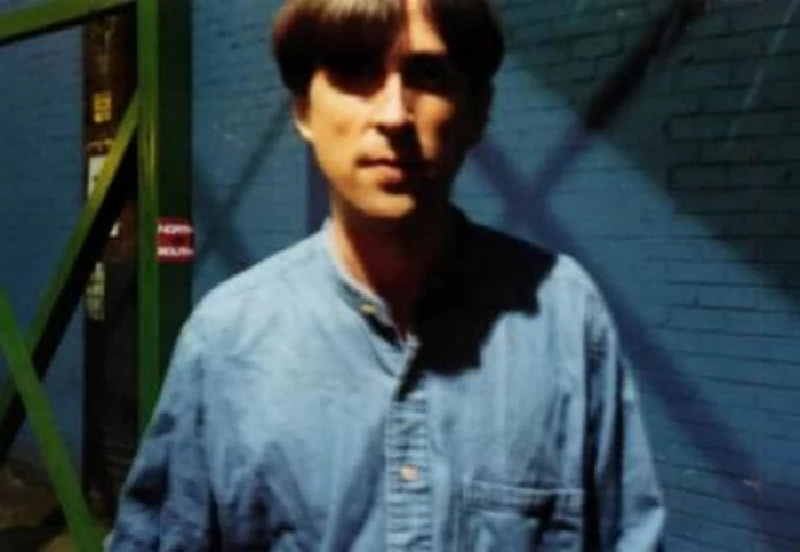
intro
Doug Hoekstra is one of the up-and-coming and rising stars of the American alternative music scene. Native born, but of Lithunian and Dutch ancestry, Hoekstra was brought up in Illinois, but now live
Doug Hoekstra is one of the up-and-coming and rising stars of the American alternative music scene. Native born, but of Lithunian and Dutch ancestry, Hoekstra was brought up in Illinois, but now lives in Nashville. An English and a Creative Writing graduate, Hoekstra's first fiction book 'Claim Check Stories' is projected for release in the Autumn, and he has also written a non-fiction book 'Hard Boiled Heroes and Renegades' which is due for publication soon. A musician as well for over a decade, he has, as well as a limited edition live album 'Doug Hoekstra 9/9/2000' which was released on the French micro-label hinah earlier this year, also recorded six studio albums. Two of these, an eponymous debut album (1991) and 'High on the Hog' (1993), were recorded with Hoekstra's now defunct country group, Bucket No 6, while the remaining four, 'When the Tubes Begin to Glow' (1994), 'Rickety Stairs' (1996), "Make Me Believe' (1999) and this year's 'Around the Margins', are all solo albums.. 'Around the Margins', which is both Hoekstra's most critically acclaimed and successful album to date, was born out of a happy accident when Hoekstra, shortly after completing 'Make Me Believe' travelled to Chicago to road test his friend Jeff Kowalski's new Mondo Oakdale studios. After successfully recording eight songs which appear on the album there, Hoekstra, now intending to put out a record, returned to Nashville and recorded the remaining seven songs of 'Around the Margins' at WingDing, a local studio which is owned by George Marinelli, who is also a guitarist with Bonnie Raitt. A hybrid of styles, 'Around the Margins' shifts , sometimes in the same song, across a variety of genres including pop, country, folk, blues and rock. Both partly autobiographical and character-driven, it tells of lives in the balance and on the fringes of society, but also in contrast includes Hoekstra's first ever recorded cover song, a mellowed down version of Bob Dylan's thundering 'Isis'. With a European tour, scheduled for October of this year, and both his musical and literary career attracting increasing press attention, Doug Hoekstra took the opportunity to talk to Pennyblackmusic about 'Around the Margins', and its storytelling and recording. PB : Why did you decide to call your new album 'Around the Margins ?' DH : When I am finished with a batch of songs, I try to step back and to look at it from a third person perspective and to see if I can draw connections, and if there are key lines that poke out at me. That's a line from one of the songs, 'Birmingham Jail', which was inspired by a trip I made to the Martin Luther King house in Atlanta. It stuck out at me when I looked at it , and I realised then that a lot of characters in the songs on the album were people on the margins of society. That's also artistically where I feel I come from. PB : You live in Nashville which is the most musically genre-based city in the world. Your music could be in part described as country, but it also flits in and out of several other different genres as well. Was that also a reason then why you chose that name ? DH : Yes, definitely ! There's a lot of interesting underground people in Nashville, and in the broadest sense that is where I feel I stand musically as well. A lot of my stuff is very left of centre and on this record in particular it seemed that we took some chances with arrangements and things like that. The name, therefore suited where I was at at that time as well. I saw a connection between where the characters were and also where I was coming from, and for that reason as well it , therefore, seemed to make sense to run with that name. PB : You are of Lithunian and Dutch ancestry. You have also moved around a lot. You were brought up in Naperville, a small city in Illinois, and have since lived in Chicago, and are in Nashville now. Do you see yourself as being on "the margins" because of that as well ? DH : It is an interesting question. When I was a kid, I wouldn't have thought that, but, as an adult, I look at it and I think so definitely.There is something about being a second-generation . My grandparents came from Holland and Lithunia, so my folks were really the first generation that were born over here. Although it is fairly easy to fit in here, you are always aware of your sense of place in America, and of your heritage. The Lithunian people are also in many ways definitive underdogs PB : You began recording the album in quite unusual circumstances. You were invited to Chicago to test your friend Jeff Kowalkowski's studio in Chicago. Who is he ? DH : I've known Jeff for a long time, and he has actually played on all my records . He is an avant-garde composer and arranger, and he also plays the piano, and does a lot of scoring. He' has hung around with me a lot throughout the years. We had always talked about doing something, just eyeball to eyeball, him and I, just to see what we came up with, and this is what came out of it. He produced eight of the tracks on 'Around the Margins', and for the first time on one of my records also did a lot of the arranging. PB : 'Around the Margins' was recorded just after 'Make You Believe', your third album, came out. When you went to Chicago, did you intend to record an album ? DH : Not really ! No. We just decided to to record some songs, and to see what happened. It went pretty well, and a lot of the material that we did didn't in fact make it on to the record. We had a lot of fun and worked real hard, and developed the songs as we went along . Sometimes we would have preconceived notions, and sometimes we developed them as we recorded. PB : How many of the songs did you actually write before you went to Chicago ? DH : I don't know. I probably had thirty or forty. I had quite a backlog because I tend to write a lot, my feeling being if it is good then it is good. You've then got something. If it is crap,however, then you are free to move onto the next one. PB : How long were you in Chicago for ? DH : We recorded the songs in three and four day sessions. They were extremely long sessions. We would work from nine to five, break for dinner, and then work into the night. I recorded them over a three month period. PB : You went to WingDing Studios to finish off the album. It is run by George Marinelli, who produced the remaining seven tracks. Who is he ? DH : George is a session guy from L.A., but he has also lived in New York. He used to play in Bruce Hornsby's band, and he plays for Bonnie Raitt right now. He is an extremely versatile player, and is one of these guys who can pick up any instrument and make something happen with it. He also has a little studio here in Nashville. When I had finished doing the stuff at Jeff's, I approached him about doing some recording at WingDing. Although I was happy with all the material that I had recorded at Mondo Oakdale, we hadn't used a band . It was all just Jeff and me. I, therefore, decided to work at WingDing on some of the songs I hadn't tackled and had left, and also a few that I felt could use another treatment. I brought in my regular band and we cut some of them to balance the record out PB : You've said in the past that you think of and use the studio as an extra band member. Can you elaborate on what you meant by this ? DH : When you play gigs at different venues, you get different vibes from the rooms in which you are playing. It is the same to me with the studio.Each studio has a different character, and there are different things which are strengths and weaknesses with each space. You can play off that. I think that the Beatles were interesting in that sense as they let their limitations become their strengths. They always worked on four track. Obviously sixteen and twenty four track hadn't been invented then, but instead of letting that be a thing that hindered them, they found ways of breaking new ground. The stuff that was recorded with Jeff was all on eight track. That was one of the limitations that we had when we were recording the album, but at the same time we also knew that it was the character of the thing that we were doing. Either it would be cool or we would find ways of working with it. I had some idea of the stuff we might pull out before I began recording with Jeff, and it was the same deal at George's. I went in to WingDing beforehand and listened to some of the stuff that he had done, and realised that there was a good live feel there, and that he was into working a certain way quickly, which I figured would lend itself well to certain songs. I'm not always totally spot on with those assessments, but I do think you can guide your material that way. PB : It's a gut instinct in a lot of cases then. DH : Yeah ! I think so. Sometimes you run up a dead lead, but at other times you can come out with a lot of interesting stuff that way. PB : You're also an author. You've got a fiction book coming out this summer, 'Claim Check Stories' and also a non-fiction book 'Hard-Boiled Heroes and Renegade Romantics' on its way. What are these books about ? DH : 'Claim Check Stories' are some short stories that I have collected and have published seperately in magazines here and there. In terms of the subject matter, I would say that it is probably near to what I am doing on my records, and a lot of the form and a lot of the characters come from the same places. 'Hard Boiled Heroes and Renegade Romantics' is a project that grew out of a Masters Thesis that I did here in Nashville. It's a thing about how pop culture gets absorbed into academia . It uses as models hard-boiled writers from the thirties and forties such as Chandler and Hammett, and also songwriters from later on such as Dylan and Springsteen. There's a lot of parallels there as they both similarly describe widespread culture, and 'Hard Boiled Heroes and Renegade Romantics' traces them back to the romantics. It is pretty much finished, and I am shopping it about at the moment, but I am not sure where or when it will come out yet. PB : To take up your point that your short stories are often reflected in your music, the music critics have said about you that you create "five-minute worlds" and write albums "like anthologies" that are "packed with incident and description". Would you agree with those assessments ? DH : Yes ! I would say that that is what I try to do. That is very, very flattering when people say that, as that's what I try to shoot for. The writers that I really admire, both the songwriters and the writers, are the writers that can get real detail and tactile emotions into their settings. I like to try to feel a mood though if possible in a song, in addition to it telling the story, and I really like albums that do that, that create moods both in the production and in the songwriting. That's what I try to do as well. PB : Which comes first with you ? Is it lyrics or tunes ? DH : Usually lyrics. I think I am a little different than a lot of other songwriters , as I haven't met too many others who start with the lyrics. I always like to to start with the words though because it begins that mood for me. Even if I am thinking "This is an interesting idea for a song", I tend to jot out some lyrics first. My musical direction may wind up going somewhere else. Maybe I'll chop the lyrics. Maybe I'll change them, but they still create a base. They still create for me a foundation that tells me that what the song is about and in which direction it is going. It helps to give it form for me. It is always instinctive to me to have the story first. PB : How many of your songs are autobiographical, and how many are fantasy based ? DH : It is a combination. There are songs on 'Around the Margins' like 'Desdemona' and 'Undone' that are totally fiction, but there are ones like 'Giving Up Smoking' and 'Black and White Memories' that are more autobiographical. Iif I were to psychoanalyse myself, however, I would probably find elements of autobiography in everything I write , and I think that's kind of common to the process. Sometimes it comes through another way. When you're writing a fiction, you're thinking about certain things that have happened to you, or people that you know In terms of how they play out though, it is different from song to song. PB : One of the songs on 'Around the Margins' is a cover of a Bob Dylan song, 'Isis'. Why did you decide to put that on the record ? DH : I had never done a cover before on any of my records, and one of the things that Jeff and I talked about was doing a couple, so we did that song and also a Bertolt Brecht and Kurt Weill song 'A Soldier's Wife' , which is still in the can. I have always liked 'Isis', and it is one of my favourite Dylan songs. Although it is very different from the other songs on the album, it connects well with the subject matter of the rest of the album and I thought that it would fit right in. It was a challenge to do it as well . It's not very easy to vamp on just four chords for eight minutes and to make something happen. We, therefore, went for a different approach. Dylan's song is a very aggressive, especially if you hear the Rolling Thunder versions, so I figured "Let's try to go inside it and go for the other direction PB : Your vocal style on the album is very unusual. It is half whispered, half spoken, but it really draws you into the narrative. Is that something that you have worked upon over the years, or is is something that just comes to you naturally ? DH : I've developed it . In my old band, Bucket No. 6, I sang more traditionally and I was never very happy with my voice. When I went solo, I wanted to do stuff that had more of a narrative and I wanted to do a thing that drew people in. Singing quietly like that was something I just stumbled upon , and I thought that it gave a better timber to my voice. I think it brings you in,but it also drives the engineers crazy because it is harder to mix. When you mix a quiet vocal, you have to put it underneath. You can't put it way on top because it sounds odd, while if you bury it too much you don't really hear it. PB : 'Around the Margins' unfolds in the same way as a novel. It's got lots of peaks, and lots of twists and turns. When you began recording the album, was that your intention or was this something which just evolved as recording went on ? DH : I would say that that was something which evolved as we looked at the material. We wound up cutting about twenty or twenty two songs. I usually cut more than I use, but not that much. It became a case then of "What do I have here ? Let's see how these fit together, and how this puzzle comes together". That would have come out in the process of making the cuts and figuring out the sequence and that sort of thing. PB : Last two questions,! It's both musically and lyrically a really provocative album. Do you believe in pushing and stretching your audience ? DH : Yes ! Anybody who I really admire in music has pushed me and pushed themselves, usually over a body of work. That's difficult these days, because peoples' attention spans nowadays are so short. It's a different world now than when Dylan and Van Morrison and people like that came in. They had these kind of audiences which stayed with them from record to record. They were able to push themselves and each other and their audience, but that is definitely the kind of role model for what I want to do as well. PB : Finally you are touring Europe later this year. What else have you got planned for the near future ? DH : We've got a lot of gigs over here in America in the Fall as well. I'll also start thinking soon about what we are going to do for the next record. There are some songs already in the can for that, and then there are also other songs that I am writing at the moment . I'll begin trying to figure out what kind of shape those might take and how they might be approached and that sort of thing. That's the next thing on the plate. I also want to catch up on my reading. PB : Thank you
Band Links:-
https://doughoekstra.net/https://www.facebook.com/doughoekstramusic/
Have a Listen:-
Picture Gallery:-
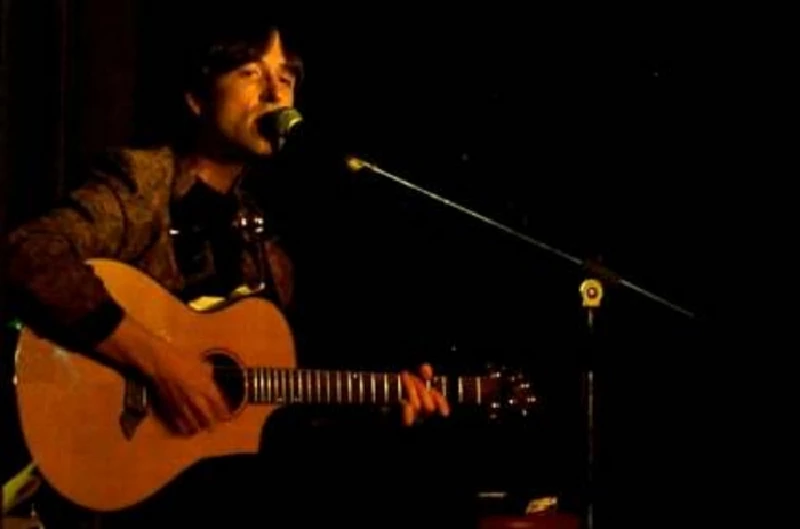
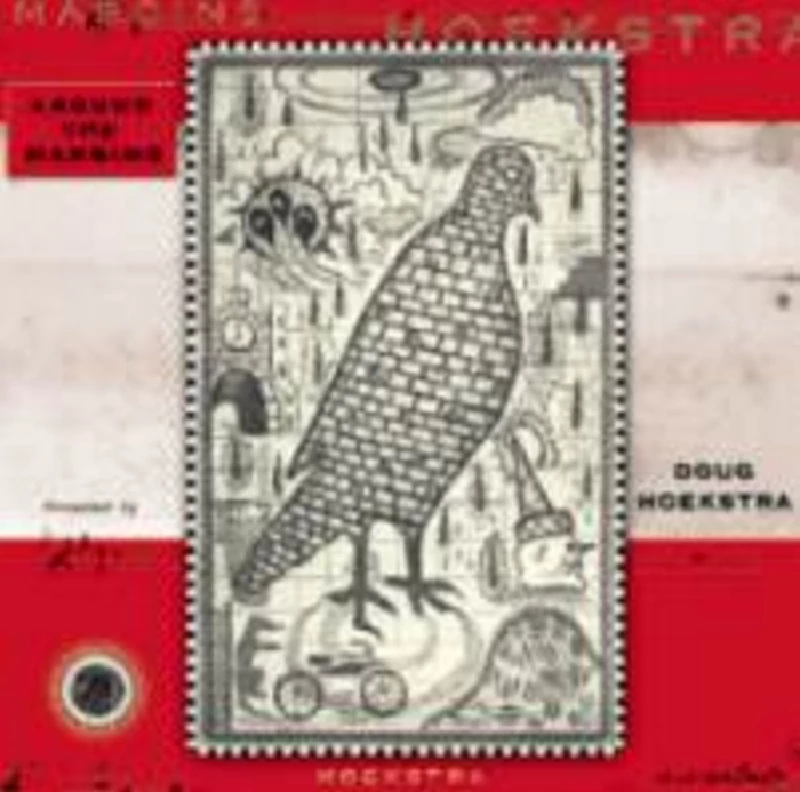
interviews |
|
Interview (2021) |
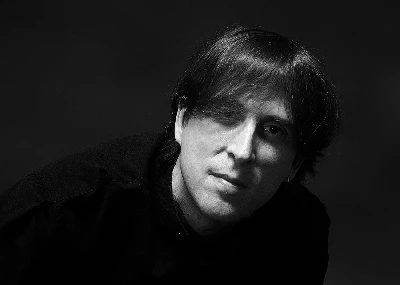
|
| Nashville-based writer and musician Doug Hoekstra talks to John Clarkson about 'The Day Deserved', his first album in over a decade, and his return to music. |
| Interview (2003) |
profiles |
|
Ten Seconds In Between (2021) |
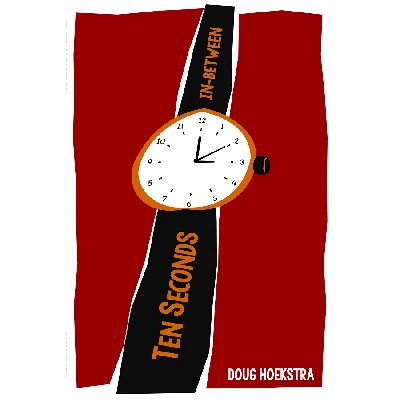
|
| John Clarkson examines Nashville-based singer-songwriter and author Doug Hoekstra's haunting new collection of short stories. |
| 'Wintertime' Video Premiere (2021) |
| Unopened (2019) |
features |
|
The Image That Made Me Weep (2020) |
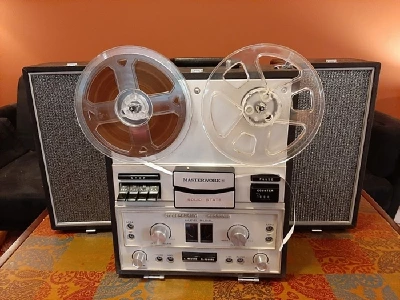
|
| Nashville-based musician and writer Doug Hoekstra in 'The Image That Made Me Weep' writes of the redisoovery of a reel to reel tape recorder on which he made much of his early music in his late father's house |
| Six Songs/Su Casa, Mi Casa : the Official Live Boo (2005) |
reviews |
|
Blooming Roses (2008) |
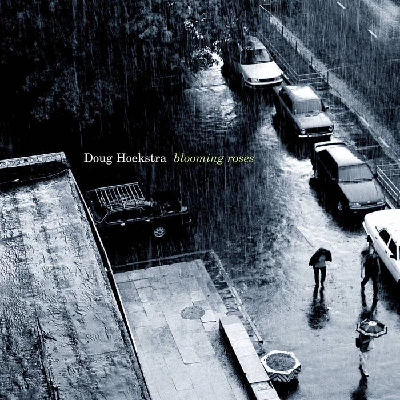
|
| Superb and ultimately hopeful eighth album from Nashville-based singer-songwriter Doug Hoekstra |
| Waiting (2004) |
| The Past is Never Past (2001) |
| Around The Margins (2001) |
most viewed articles
current edition
Carl Ewens - David Bowie 1964 to 1982 On Track: Every Album, Every SongArmory Show - Interview with Richard Jobson
John McKay - Interview
Colin Blunstone - Thalia Hall, Chicago, 16/7/2025
Billie Eilish - O2 Arena, London, 10/7/2025
Bathers - Photoscapes 1
Visor Fest - Valencia, Spain, 26/9/2025...27/9/2025
Loft - Interview
Sir Tim Rice - Interview
Robert Forster - Interview
previous editions
Manic Street Preachers - (Gig of a Lifetime) Millennium Stadium, Cardiff, December 1999Heavenly - P.U.N.K. Girl EP
Beautiful South - Ten Songs That Made Me Love...
Oasis - Oasis, Earl's Court, London, 1995
Peter Perrett - In Dreams Begin Responsibilities Interview Part One
Boomtown Rats - Ten Songs That Made Me Love....
Coldplay - Wembley Arena. London, 16/8/2022
Prolapse - Interview
Pixies - Ten Songs That Made Me Love...
Trudie Myerscough-Harris - Interview
most viewed reviews
current edition
Davey Woodward - Mumbo in the JumboSick Man of Europe - The Sick Man of Europe
Lucy Spraggan - Other Sides of the Moon
Amy Macdonald - Is This What You've Been Waiting For?
Phew, Erika Kobayashi,, Dieter Moebius - Radium Girls
Bush - I Beat Loneliness
Suzanne Vega - Flying With Angels
Alice Cooper - The Revenge of Alice Cooper
Cynthia Erivo - I Forgive You
Blueboy - 2
Pennyblackmusic Regular Contributors
Adrian Janes
Amanda J. Window
Andrew Twambley
Anthony Dhanendran
Benjamin Howarth
Cila Warncke
Daniel Cressey
Darren Aston
Dastardly
Dave Goodwin
Denzil Watson
Dominic B. Simpson
Eoghan Lyng
Fiona Hutchings
Harry Sherriff
Helen Tipping
Jamie Rowland
John Clarkson
Julie Cruickshank
Kimberly Bright
Lisa Torem
Maarten Schiethart